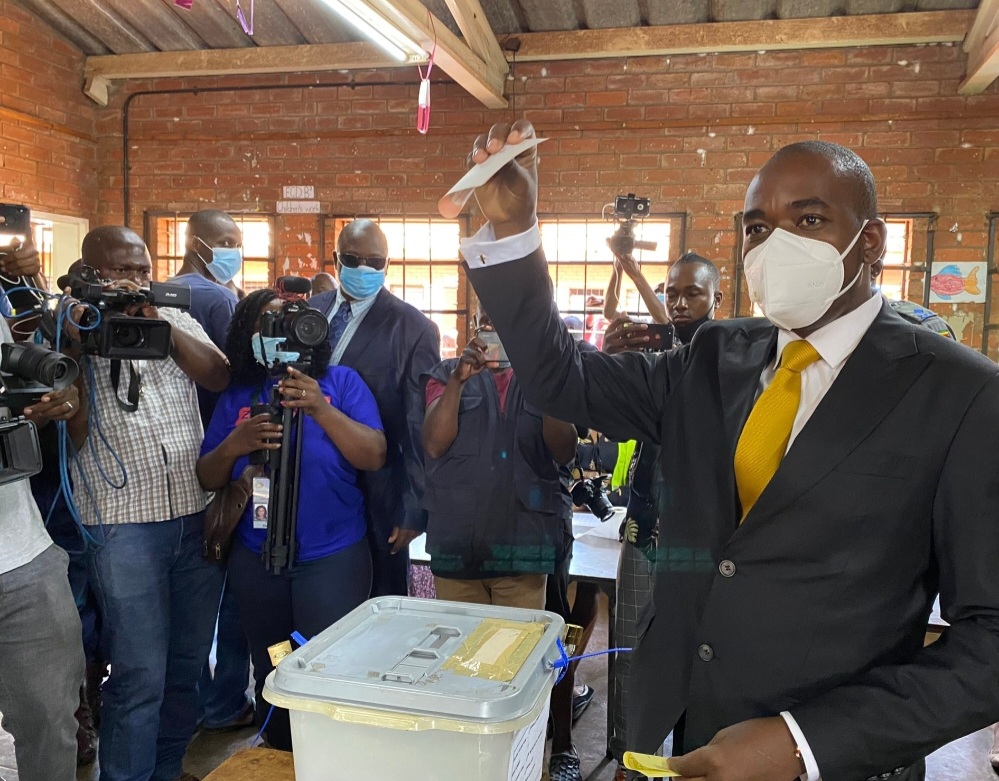BY WANDILE TSHUMA
Former Citizens Coalition for Change (CCC) leader Nelson Chamisa has responded to criticism that he has failed to take decisive action against Zimbabwe’s ruling Zanu PF government.
In a social media post, Chamisa defended his approach, emphasizing that the fight for change in Zimbabwe is a marathon, not a sprint.
Chamisa acknowledged the struggles and fatigue that come with fighting for justice, saying, “It has not been easy to stand for right, truth, and the authentic alternative. I can understand the struggle fatigue. It has been a long, rough, and tough journey.”
He also addressed criticisms that he has been too quiet on key issues, saying, “Some get genuinely tired, exhausted, and or get too old, yet can’t let go. Some are disappointed, depressed, and frustrated at the delay in quick results.”
Chamisa emphasized that the struggle for change is not a solo effort, saying, “Some are pretenders, infiltrators, and establishment collaborators who play for the other team. And they often shout and caricature the loudest.”
He concluded by affirming his commitment to the fight for a better Zimbabwe, saying, “Some fight to the bitter end! These few are in it for the long haul, for service and for Zimbabwe and its people. AND I am proud to belong to this category.”
Direct Quotes:
1. “It has not been easy to stand for right, truth, and the authentic alternative. I can understand the struggle fatigue. It has been a long, rough, and tough journey.”
2. “Some fall by the wayside, some go offside yet very few remain onside and inside!!”
3. “Some get genuinely tired, exhausted, and or get too old, yet can’t let go.”
4. “Some are disappointed, depressed, and frustrated at the delay in quick results.”
5. “Some may resort to finger-pointing and blame game as a post-election dissonance and frustration coping mechanism.”
6. “Some are pretenders, infiltrators, and establishment collaborators who play for the other team. And they often shout and caricature the loudest.”
7. “Some admire the opportunities offered by occupying office and being in government-as President, Minister, MPs, Councillors or public service.”
8. “Some are content with benefits and privileges of power and position as opposition for life.”
9. “Some are in it for survival and employment escaping poverty and never for service, change, and leaving a legacy.”
10. “Some seek short cuts decide that if we can’t beat them join them-so joining the gravy train becomes the easy answer!”
11. “Some choose to disengage and pursue personal goals, interests, and business as private citizens.”
12. “Some are perennial skeptics and perpetual cynics and armchair critics. The naysayers and doomsayers. These are a mortal danger to a people struggle for a better world.”
13. “Some fight to the bitter end! These few are in it for the long haul, for service and for Zimbabwe and its people. AND I am proud to belong to this category.”

 Slider3 years ago
Slider3 years ago
 National4 years ago
National4 years ago
 Tourism and Environment4 years ago
Tourism and Environment4 years ago
 Opinion4 years ago
Opinion4 years ago
 Special reports4 years ago
Special reports4 years ago
 National4 years ago
National4 years ago
 National3 years ago
National3 years ago
 National3 years ago
National3 years ago



